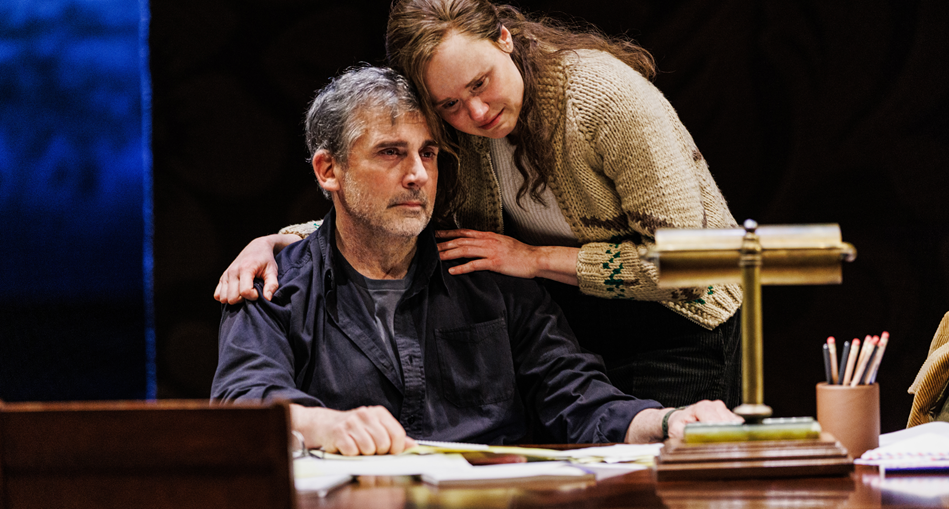
If Lincoln Center’s revival of Anton Chekhov’s Uncle Vanya feels both timely and timeless, we can thank playwright and actress Heidi Schreck for her smart adaptation of the 1898 classic. With no references to anything that would place the story in a particular time or place (money is referred to as dollars, people reference “calling” each other rather than “calling on” someone), the play becomes universal—and all the more poignant.
In Schreck’s hands, the lengthy Russian names become Anglicized and more approachable for American audiences—Aleksandr is now Alexander and Yelena is Elena, for example. But Ivan is still affectionately called Vanya by the family that both depends on him and disregards him, and the titular antihero is as curmudgeonly as ever.
Fortunately, the modernizations do not feel forced, and the story’s themes of unrequited love, unappreciation and resentment hit as hard as they did in 1897. Perhaps most importantly, her language is natural and familiar, making it easy to connect with each of the characters and their dilemmas.
The production has generated headlines based on its A-list cast, including TV and film star Steve Carell in his Broadway debut and William Jackson Harper returning to Broadway after a decade of TV, film and off-Broadway work. And fortunately, the cast works very well together both as a team and as individuals. Carell has a strong stage presence and tempers Vanya’s grief and rage with wry humor—exactly what a Russian comedy calls for. His Vanya is smart and savvy, and watching him struggle to keep his temper while coping with life’s disappointments is truly moving. When he finally snaps late in the play, the moment feels long overdue, and the emotion is a powerful release.
As Astrov, Harper is charmingly naive, balancing cluelessness with an almost boyish enthusiasm that serves as a great contrast to Carell’s world-weariness. When the two men become romantic rivals, we can see why Elena—played with calculated grace and wit by Anika Noni Rose—is drawn to the spark of energy instead of the gloom. Her Elena is trapped in a cage she stepped into quite willingly, and Rose beautifully emphasizes the character’s frustration with the choices she has made and the unwinnable choices before her.
Alison Pill gives a quietly devastating performance as Sonya, equally sensitive and savvy, while Alfred Molina is an appropriately blustery Alexander and Jayne Houdyshell is empathetic as Maria, the family matriarch.
Lila Neugebauer’s direction works well with Schreck’s adaptation, which lets the comically gifted actors find the humor other actors often miss in Chekhov’s text. Mimi Lien’s set stretches to the far reaches of the Vivian Beaumont stage, evoking not only the expanse of a grand estate but the emotional distances between each of the characters. (The lighting, by Lap Chi Chu and Elizabeth Harper, does a nice job of suggesting both passion and ennui from moment to moment.) Kaye Voyce’s costumes aptly suggest who is where on the social ladder, making it clear who works for a living and who lives off of the work of others.
This revival may well be one of the closest to the mood of Chekhov’s original. While many of his plays are presented as dramas today, they were seen as comedies in their time. Both Schreck’s adaptation and Neugebauer’s direction bring this play back to its tragically funny roots.
 Friday, July 26, 2024
Friday, July 26, 2024